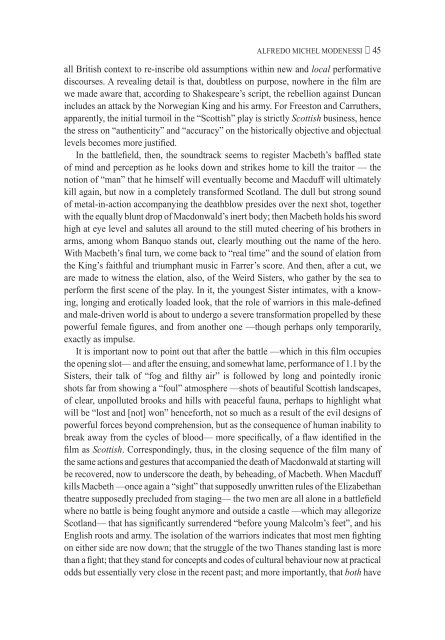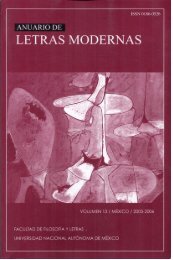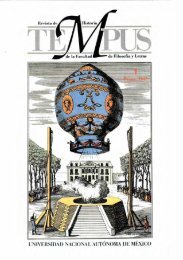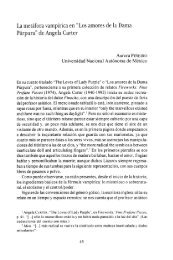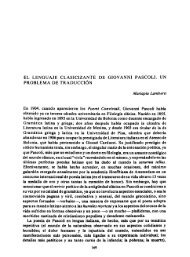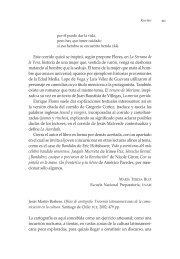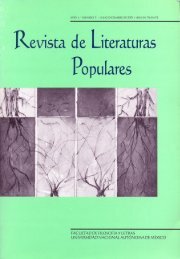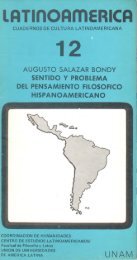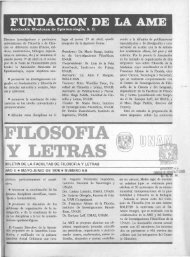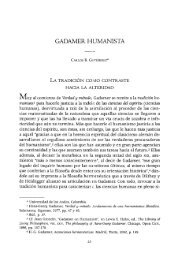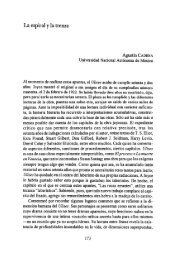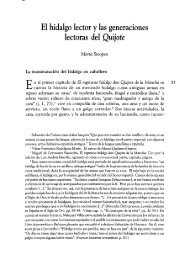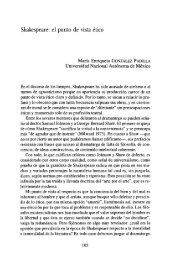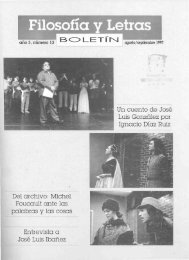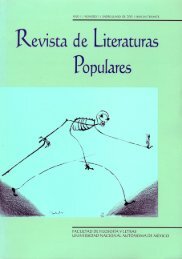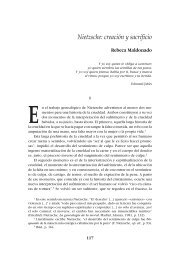Untitled - Repositorio de la Facultad de Filosofía y Letras. UNAM ...
Untitled - Repositorio de la Facultad de Filosofía y Letras. UNAM ...
Untitled - Repositorio de la Facultad de Filosofía y Letras. UNAM ...
Create successful ePaper yourself
Turn your PDF publications into a flip-book with our unique Google optimized e-Paper software.
AlFredO MIchel MO<strong>de</strong>NeSSI 45<br />
all British context to re-inscribe old assumptions within new and local performative<br />
discourses. A revealing <strong>de</strong>tail is that, doubtless on purpose, nowhere in the film are<br />
we ma<strong>de</strong> aware that, according to Shakespeare’s script, the rebellion against Duncan<br />
inclu<strong>de</strong>s an attack by the Norwegian King and his army. For Freeston and carruthers,<br />
apparently, the initial turmoil in the “Scottish” p<strong>la</strong>y is strictly Scottish business, hence<br />
the stress on “authenticity” and “accuracy” on the historically objective and objectual<br />
levels becomes more justified.<br />
In the battlefield, then, the soundtrack seems to register Macbeth’s baffled state<br />
of mind and perception as he looks down and strikes home to kill the traitor — the<br />
notion of “man” that he himself will eventually become and Macduff will ultimately<br />
kill again, but now in a completely transformed Scot<strong>la</strong>nd. The dull but strong sound<br />
of metal-in-action accompanying the <strong>de</strong>athblow presi<strong>de</strong>s over the next shot, together<br />
with the equally blunt drop of Macdonwald’s inert body; then Macbeth holds his sword<br />
high at eye level and salutes all around to the still muted cheering of his brothers in<br />
arms, among whom Banquo stands out, clearly mouthing out the name of the hero.<br />
With Macbeth’s final turn, we come back to “real time” and the sound of e<strong>la</strong>tion from<br />
the King’s faithful and triumphant music in Farrer’s score. And then, after a cut, we<br />
are ma<strong>de</strong> to witness the e<strong>la</strong>tion, also, of the Weird Sisters, who gather by the sea to<br />
perform the first scene of the p<strong>la</strong>y. In it, the youngest Sister intimates, with a knowing,<br />
longing and erotically loa<strong>de</strong>d look, that the role of warriors in this male-<strong>de</strong>fined<br />
and male-driven world is about to un<strong>de</strong>rgo a severe transformation propelled by these<br />
powerful female figures, and from another one —though perhaps only temporarily,<br />
exactly as impulse.<br />
It is important now to point out that after the battle —which in this film occupies<br />
the opening slot— and after the ensuing, and somewhat <strong>la</strong>me, performance of 1.1 by the<br />
Sisters, their talk of “fog and filthy air” is followed by long and pointedly ironic<br />
shots far from showing a “foul” atmosphere —shots of beautiful Scottish <strong>la</strong>ndscapes,<br />
of clear, unpolluted brooks and hills with peaceful fauna, perhaps to highlight what<br />
will be “lost and [not] won” henceforth, not so much as a result of the evil <strong>de</strong>signs of<br />
powerful forces beyond comprehension, but as the consequence of human inability to<br />
break away from the cycles of blood— more specifically, of a f<strong>la</strong>w i<strong>de</strong>ntified in the<br />
film as Scottish. correspondingly, thus, in the closing sequence of the film many of<br />
the same actions and gestures that accompanied the <strong>de</strong>ath of Macdonwald at starting will<br />
be recovered, now to un<strong>de</strong>rscore the <strong>de</strong>ath, by beheading, of Macbeth. When Macduff<br />
kills Macbeth —once again a “sight” that supposedly unwritten rules of the Elizabethan<br />
theatre supposedly preclu<strong>de</strong>d from staging— the two men are all alone in a battlefield<br />
where no battle is being fought anymore and outsi<strong>de</strong> a castle —which may allegorize<br />
Scot<strong>la</strong>nd— that has significantly surren<strong>de</strong>red “before young Malcolm’s feet”, and his<br />
english roots and army. the iso<strong>la</strong>tion of the warriors indicates that most men fighting<br />
on either si<strong>de</strong> are now down; that the struggle of the two Thanes standing <strong>la</strong>st is more<br />
than a fight; that they stand for concepts and co<strong>de</strong>s of cultural behaviour now at practical<br />
odds but essentially very close in the recent past; and more importantly, that both have


